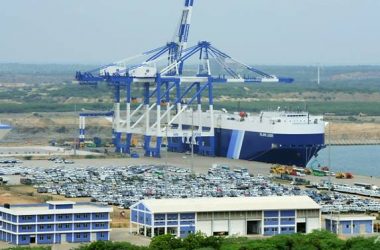Treaty of the non-proliferation of nuclear weapons (NPT) is an international treaty that refutes and prevents the threat of nuclear weaponry and technology, as well safeguarding the peaceful uses of nuclear energy. The treaty becomes the only body that bringing all nations to sit and discuss the matter regarding to nuclear disarmament. The main goal of this Treaty is to completely disarming the nuclear weapon [1].
NPT is administrated under United Nations Office for Disarmament Affairs. The establishment of this Treaty is dated back in 1968 and was later enforced in 1970. Currently, there is about 190 nations signed the Treaty including five nuclear-weapon nations.
In making sure that the treaty remains reliable and sound, a review of the treaty’s operation is conducted in every five years as agreed in 1995 NPT Review and Extension Conference. NPT is also collaborating with the International Atomic Energy Agency (IAEA), ensuring the goal’s priority is achieved. The collaboration is mainly targeting in providing a confidence-building measure between the signed nations. It denotes that a safeguard system is placed under IAEA’s and they are responsible in validating compliance with the Treaty.
Taking into account the purpose of NPT, promoting to the world a peaceful uses of nuclear materials is becoming increasingly important. Albeit of tireless effort to stop any kind of motivation that can lead to initiation of tension, none can be done to eliminate the idea of nuclear-based war in today trembling situation. For instance, one of the concerns raised by Mark Hibbs [2], a Berlin-based senior associate Carnegie’s Nuclear Policy Program, is conflict of interest between good non-proliferations and perceived strategic.
In his article titled Turkey’s Interests and Tanideh, he began describing that in late 1970s, the United States struggled to halt two Turkish companies selling their power inverters to Pakistan, used in uranium enrichment program. It took nearly two decades of tête-à-tête between U.S. President, Ronald Reagen and Turkey’s President, Kenan Evren to do so. At that time, Pakistan is considered as crucial bilateral-partner and so exceeding the Turkey’s non-proliferation interest.
In 2013, Turkey has once again entangled to another great situation involving three-country conflict, Turkey-Germany-Iran. It is understood that Germany requested Ankara to extradite a person named Tanideh who was directly subjected to procurement of Iran’s IR-40 heavy water reactor. It is believed that the reactor may be used in production of weapons-grade plutonium [3-4]. Despite the continuous pressure from Berlin, Ankara refused the extradition and surprisingly released Tanideh. Decision was made to release Tanideh as a consequent to bilateral-intelligence cooperation between Turkey and Iran. Deeper reason behind might be to safeguarding Turkey’s 500-mile-long border with Syria which in 2014 being a great perimital security concern of Turkey after providing assistance in toppling the Bashar Assad.
In summary, this is among the reports of the signed nations in NPT that will be further discussed in the next April-May 2015 NPT Review Conference at UN headquarters in New York. Being a body that monitors nuclear disarmament and promoting a good non-proliferation, the workload has increased with the recent turmoil in Ukraine and the unsettled Middle East problems that penetrating at least five years consecutively beginning in 2010.

References
[1] http://www.un.org/disarmament/WMD/Nuclear/NPT.shtml [2] http://carnegieendowment.org/experts/?fa=478 [3]http://www.isis-online.org/uploads/isis-reports/documents/Arak_complex_15July2013.pdf [4] http://www.globalsecurity.org/wmd/world/iran/arak-nrr.htm






